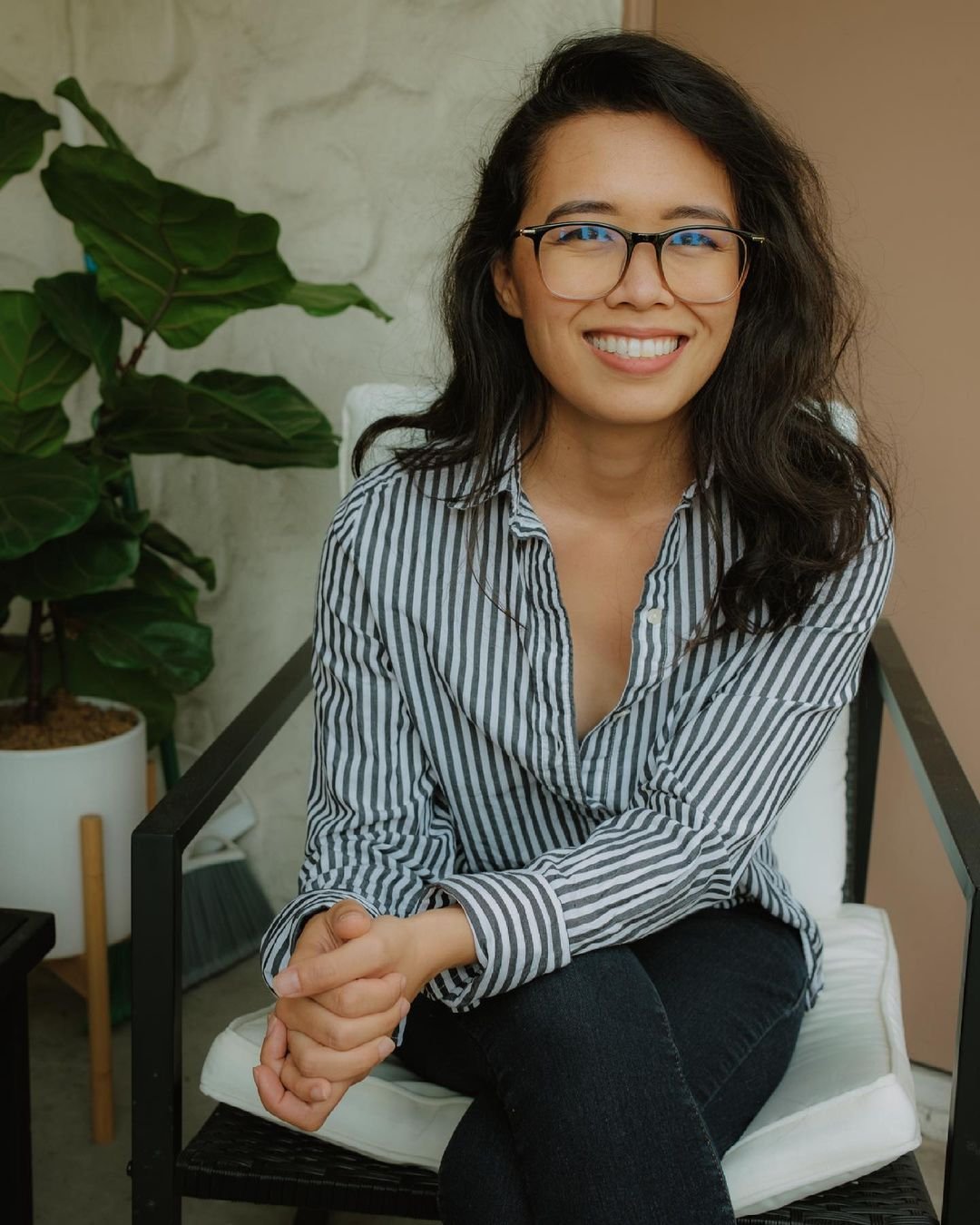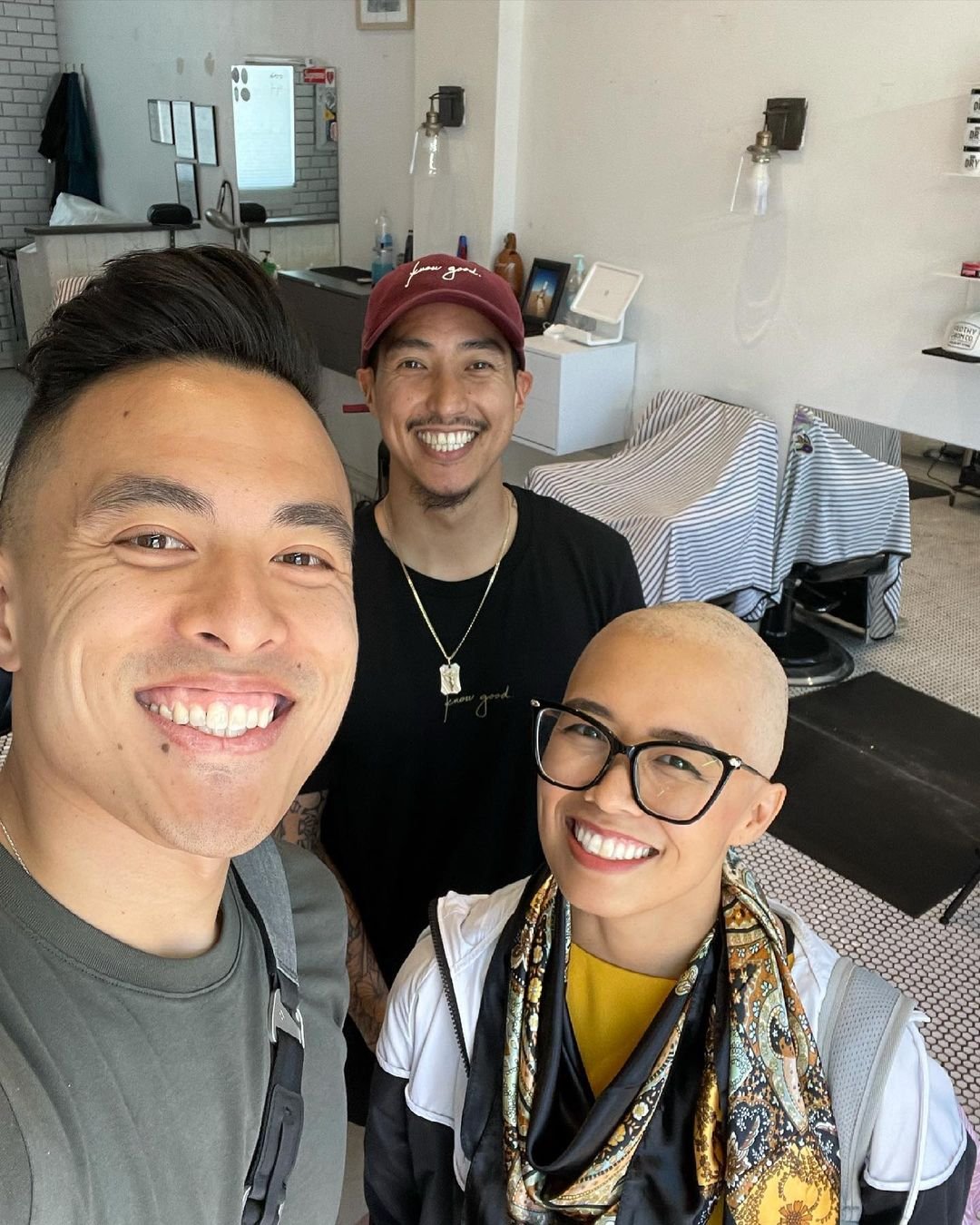Why I Founded Pink Strength After Battling Breast Cancer
The diagnosis
It was a sunny cloudless Tuesday afternoon in San Diego as usual. But the beautiful weather was lost on me as I sat at my desk struggling to work. My eyes were darting between my computer monitors and my phone anxiously waiting for it to buzz. I was growing tired and losing focus. Then it finally rang. A number I didn’t recognize but was expecting…
The voice on the other end said my name wrong when she asked if it was me. I didn’t correct her and just responded with, “This is her.”
Then she said, “Well, it’s breast cancer…”
She gave me less than five seconds to process her words before she asked if I was okay. Even so, I experienced a wave of emotions during those five seconds. I was surprised, confused, angry, and annoyed.
The surprise came first. “Did she just say cancer?” Confusion, anger, and annoyance quickly followed. “How could this be? Why would I be okay?? She just said it’s cancer!”
I sat there trying to think fast of what to say next. I had so many questions but I could barely form the words to make a full sentence. I wanted to yell at this person, but that was not in character for me. I also wasn’t alone in the shared office space.
As much as I tried to ask questions, I couldn't get them out. Every question I asked was met with, “Say it again,” or “I can’t hear you,” or “What was that?”
My annoyance was growing. I thought to myself, “She can’t answer any of my questions. She’s not even the doctor, just the breast care coordinator. So screw it!” With a little frustration in my tone I said, “Can you just tell me what to do next?”
She suddenly understood every word I was saying after that. She gave me the next steps to take and what to expect. I now had phone numbers to General Surgery, Plastic Surgery, and the Oncology department of the hospital. There were several appointments to set up, all of which I later learned required me to make life-or-death decisions almost instantly.
Before chemotherapy
Knowing my own body well, I felt fairly confident I was making the right choices for my health. But I wanted to hear from others who had been in my situation. Even though my family, friends, and doctors were all trying their best to be helpful, they couldn't fully understand what it was like for me because no one had been through this before.
Were there any other 30-year-old oncology patients in San Diego?
I wasn't able to find much. Even on social media, nothing came up.The more I searched, the more I realized that I can't be the only 30-year-old looking for these answers.
Most stories out there are of women who were afflicted with breast cancer in their 50s or 60s. Getting diagnosed at this stage of your life is very different from getting diagnosed in your 20s or 30s.
Women in their 50s have had more time to start a family and flourish in their careers– they have experienced much of what life has to offer.
When we are in our 20s or 30s, we are still discovering who we are and what we want out of life. The thought of starting a family and buying a home is often just beginning to cross our minds.
Don’t get me wrong– I find inspiration in the stories of all women, not just people my age. But ultimately, I couldn't connect with their journey simply because they were at a different stage in their lives.
The “talk”
No one wants to talk about having cancer. It’s a very personal and intimate subject. In some cultures it can be seen as shameful, like you’re being punished by the universe for your past mistakes/sins.
To share this experience publicly, leaves you vulnerable to the judgments and thoughts of others. It weighs on our minds and hearts to expose ourselves emotionally at a time when our bod is already telling us we're not invincible.
For the sake of showing others that vulnerability is powerful, I decided to share my journey publicly. I shared my diagnosis on social media, to a wave of encouragement and love.
I was overwhelmed with the outpouring of support from friends and family—and strangers too! People shared their own cancer experiences, whether it was their own or that of a family member.
This experience changed the way I looked at vulnerability. It showed me that being open about your struggles can make you feel less alone, and that being vulnerable doesn't mean being weak.
“Strength in Vulnerability” is what I experienced in my journey. It’s the essence of our organization. It’s the underlying idea of our mission (“Redefine Life With Cancer”) and our name (Pink Strength). Their message is the same: there is power in life’s delicate moments.
The journey
The goal of Pink Strength is also to empower patients through their journey to recovery.
A cancer patient has so many things to deal with: we have to make sure our treatment plan is working, that we're taking the right medications at the right time, and staying active and eating well. But there's so much more than that!
Through my own experience, I know that healing doesn't just mean treating physical symptoms, but also our mental and emotional well-being. The journey of healing is about shifting our beliefs, thoughts, and emotions. There is no right way to do it; you choose what works best for you.
For me, treatment included working with an Empowerment Health Coach and Energy Healer. As a result of what she taught me and my hospital treatment, I felt empowered throughout my journey. It opened my eyes to the possibility that there are many things out there that we're not aware of but that could be helpful to many of us going through what I did.
I also worked with a nutritionist who really taught me how what we consume impacts our health and that food is also a form of energy that can either raise our vibrations and support our immune system along with my treatment plan or lower our vibrations and prolong any health issues. The hospital warned me against radical diet changes during my treatment but I did it anyway. The day I started chemotherapy, I went from being a carnivore to a plant-based eater.
It's important to me that oncology patients are able to make their own decisions about how they want to manage their illness, and I want them to know all of their options—including holistic ones. The hospital is only one source of information, and while I followed the western medicine treatment plan, I also trusted my instincts and incorporated holistic approaches that felt right to me.
Ultimately, I hope Pink Strength can become a platform for making holistic options more widely accessible and known because when you’re in a literal fight for your life, you deserve to know all the options out there.
From Kristian with long hair and glasses to Kristian, the bald and beautiful!
The goal
This year, we want to raise $15,000 to help oncology patients strengthen their fight against cancer by establishing resources and support networks for them.
It's hard not to feel lost in a sea of doctors' appointments, tests, and side effects. My own journey through cancer was a blur of medications and hospital visits. And while those experiences were painful and scary at times, they were also full of hope and possibility– the possibility that one day I might find my way back into the world around me again.
We believe that if we can help even one person through this difficult time, our mission will be successful. Whether it's connecting cancer survivors and patients, or finding a nutritional coach, Pink Strength has made it their goal to ensure that everyone gets a fighting chance.
You can also donate to our efforts by clicking here. Each dollar we raise will go towards supporting oncology patients as they heal.
Pink Strength's 2022 Breast Cancer Fundraising event




